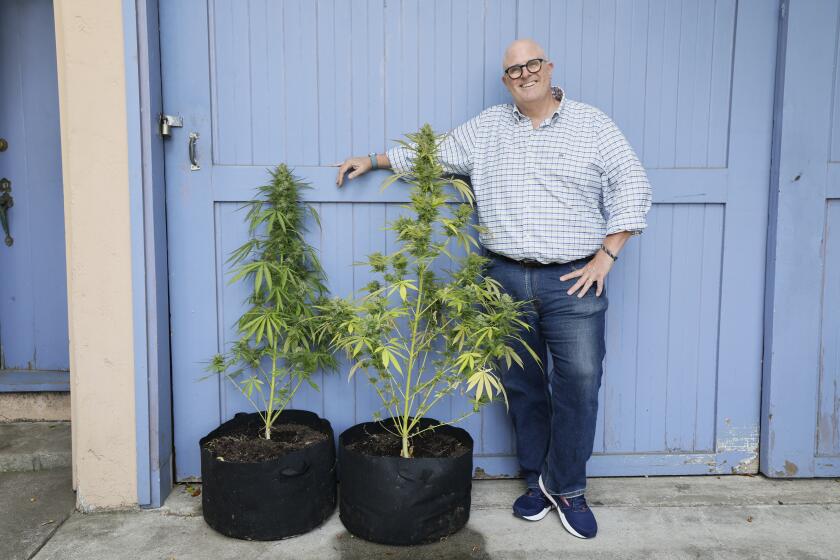Is time flying by oddly quickly during COVID-19? Here’s why you may feel that way
Think about your first day in quarantine. Does it feel like a lifetime ago? Or does it feel like yesterday?
Many people staying at home as a result of the coronavirus crisis are noticing time pass more strangely than usual. While some complain of days dragging on and on, others have taken to social media, explaining they feel the past several weeks have flown by eerily quickly.
Turns out, science can provide some insight into why our perception of time is a little wonkier than normal while in quarantine. Here’s what the experts say:
Why do some feel as though time is passing unnaturally quickly?
“Time does seem to be going really fast,” agrees Claudia Hammond, author of “Time Warped: Unlocking the Mysteries of Time Perception,” noting that it’s our perception of time that feels unusual, separate from the way time actually works. In our minds, “time can warp very easily,” she says. But why does this happen?
Why it’s time to put away the cargo shorts and yoga pants and find your shoes.
For those staying at home during the pandemic, it has a lot to do with our worlds shrinking to the bare minimum — staying at home for the vast majority of the day, with trips outside only for exercise or a visit to the grocery store. For the most part, we are not taking part in particularly memorable activities, like getting drinks with a friend, going to a sporting event or traveling, says Marc Wittmann, an author and research fellow at the Institute for Frontier Areas of Psychology and Mental Health in Freiburg, Germany. Now, there are fewer signals differentiating a Sunday from a Monday.
And if you’re doing the same thing every day — the new normal for many in quarantine — there’s no need to remember each day specifically. Even if time passes slowly in the moment, it’s likely that nothing will stand out upon looking back, causing you to perceive time has passed by quickly in the long run, Wittmann explains.
“The more emotional a memory, the longer perception of time duration.” This is why a weekend vacation will often feel longer than a weekend spent at home. And right now, many in quarantine are experiencing the opposite of a vacation, Hammond notes. “We’re not making loads of new memories now, so we don’t think lots of time has passed.”
James Broadway, an instructor of psychology at Lincoln Land Community College in Illinois, who has studied the brain’s perception of time, notes a similar phenomenon occurs when we age. The older we get, the fewer novel events we experience, which causes time to feel as if it’s going by faster than it did earlier in our lives. Hammond points out that a similar phenomenon can happen to people who are sick or incarcerated. Time will pass slowly as it’s experienced but then feel as if it’s gone by quickly in retrospect.
I know that many millennials are doing their part to flatten the curve. But it’s nerve-wracking not to trust someone you live with.
However, if you’ve felt as though time has taken a long time to pass during the pandemic, even retrospectively, you’re not alone. Adrian Bejan, a professor of mechanical engineering and materials science at Duke University, believes it’s possible the novelty of the quarantine experience could actually explain why weeks may feel like they’re dragging to some.
“The brain remembers the unusual,” he explains, and if our new routines are suddenly different, our brains would be bombarded with images worth remembering. This would then result in the perception that time is moving slowly over the quarantine experience, though it’s likely time will feel as though it’s speeding up again as the quarantine becomes more familiar.
It’s also important to note not everyone has the relative luxury of feeling bored at home while in quarantine. Many people are busier than ever, whether they’re working in a hospital on the front lines of the coronavirus or at home balancing a full work schedule while trying to home-school their children. It’s possible people who are busier than ever during the coronavirus crisis will look back and feel as though this period of their lives lasted longer than normal, Hammond suggests. “When they look back, it will be the other way around,” she says.
Many people are reporting more vivid dreams while self-quarantining, taking to social media to comment on the phenomenon.
What can we do about it?
Our altered perspective of time can be useful during quarantine. Normally, when we’re bored, we have a plethora of options in front of us, like going to the gym or meeting up with friends. Now, we’re being challenged to spend time alone or with others in our household. “This could be a chance to learn how to cope with boredom and isolation,” Wittmann explains. “Learn to be at ease with being with yourself.”
If you’re feeling anxious and have difficulty coping with being alone, it’s helpful to have a goal, he says. Whether you’re aiming to exercise more or clean your apartment regularly, having a physical task to complete may help assuage feelings of stress and take your focus off the passage of time. This is a rare occasion in which you can take advantage of having more time at your disposal to do new things, Bejan says. If you’ve always wanted to take time to paint, read more books or accomplish other quarantine-friendly activities, now could be the moment.
Staying home this weekend? We’ve got some ideas. Take care of your plants, make your house cozier, help neighbors and start planning your next trip.
Finding events to look forward to can be similarly helpful in passing the time, Hammond notes. Though we can’t look forward to vacations or physical outings with friends, she suggests re-creating the feeling of having plans by scheduling a virtual happy hour on Friday night or creating a Sunday afternoon film club, which you’re able to look forward to all week long. “Make the weekends different from the weekdays,” recommends Hammond.
Meditation may also be soothing for those suffering from anxiety in quarantine, Broadway suggests, saying, “It’s a really good opportunity to embrace doing nothing.” If all else fails, Bejan suggests those in quarantine “get into the habit of looking at things you were previously overlooking.” Focus on minute details — the way the trees look on your street, the way the steam floats off your tea. After a few minutes of taking your mind off the passage of time, you might be surprised to find time has a funny way of speeding up after all.
More to Read
Sign up for The Wild
We’ll help you find the best places to hike, bike and run, as well as the perfect silent spots for meditation and yoga.
You may occasionally receive promotional content from the Los Angeles Times.














